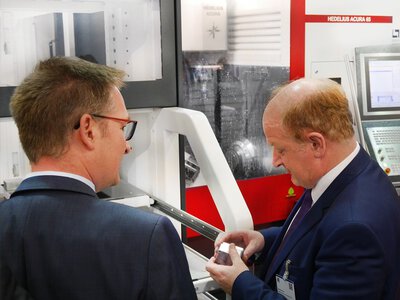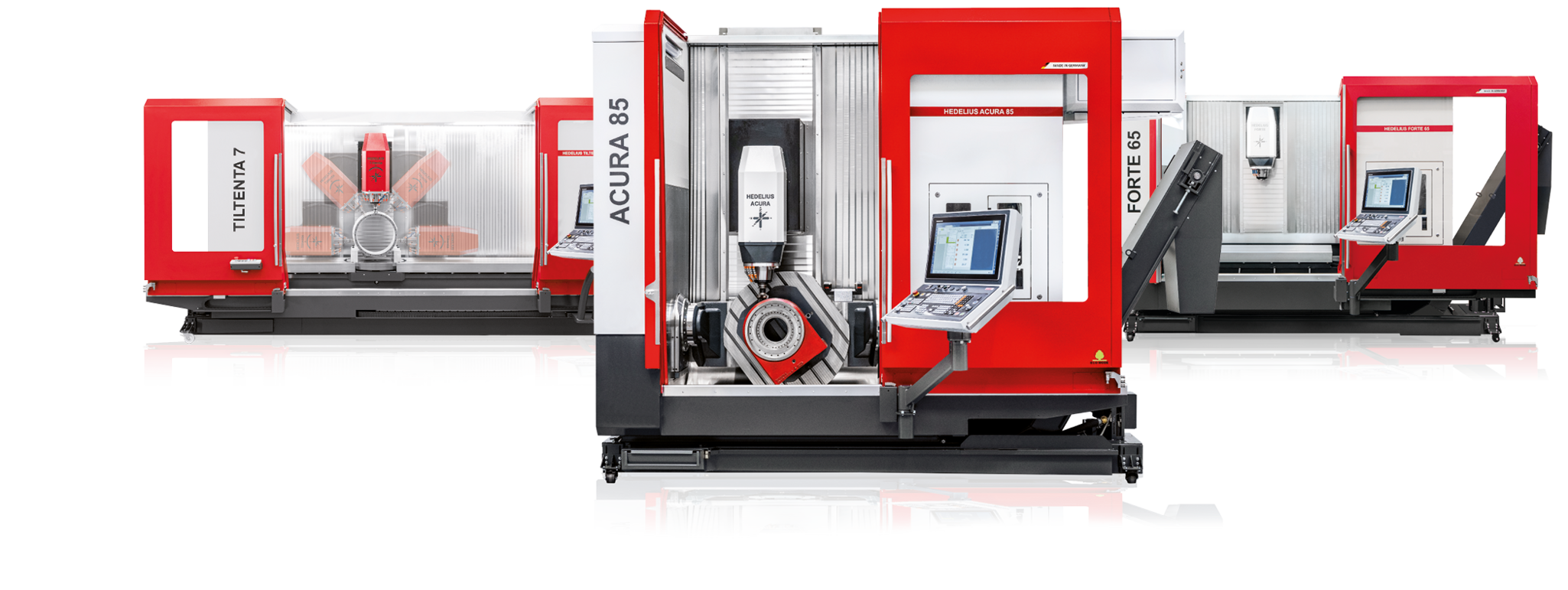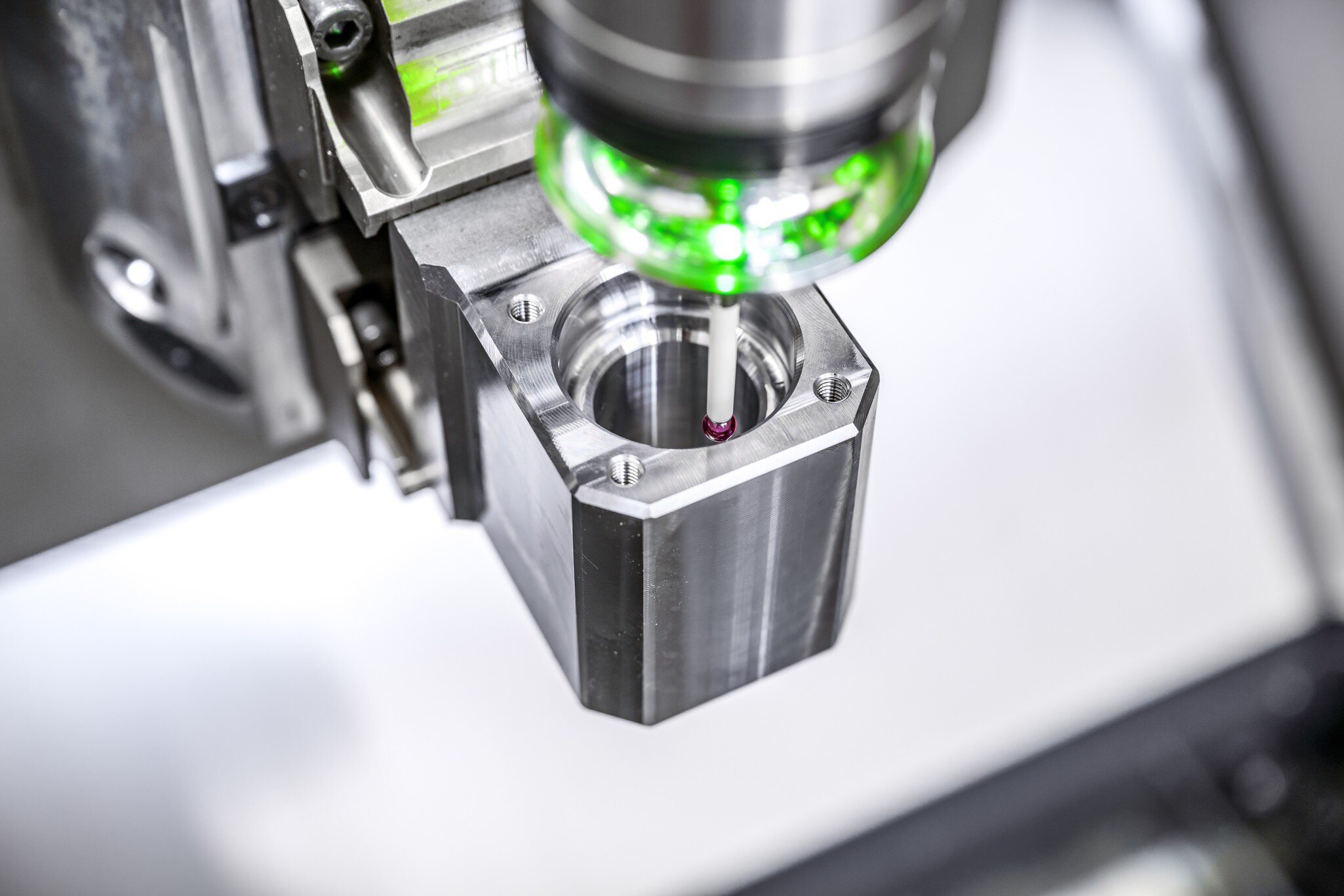20.09.2019
A guest at HEDELIUS
Lower Saxony's Finance Minister Reinhold Hilbers visits HEDELIUS at its stand at EMO 2019
The EMO in Hanover is naturally also the leading trade fair for the machining industry for HEDELIUS. This is why the family-run company from Meppen in Lower Saxony has continued to expand its presence at the trade fair over the past few years. With 510 square metres of stand space, it was the largest stand to date in 2019. Politicians have also taken notice. On the very first day of the trade fair, Lower Saxony's Finance Minister Reinhold Hilbers took the opportunity to visit HEDELIUS and have owner and Managing Director Dennis Hempelmann show him around the stand. He was informed about the machines, the trade fair presentation and the general situation of the company. "We are delighted with Mr Hilbers' visit and his interest in our trade fair presence. It shows us that we are on the right track with our company and are increasingly being recognised by the public," said Managing Director Dennis Hempelmann.
More news
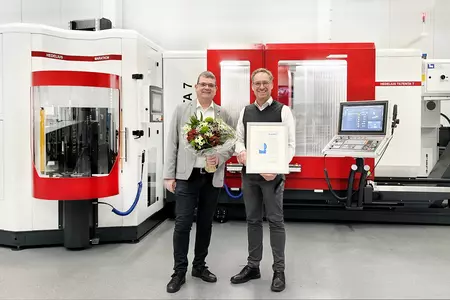
HEDELIUS Maschinenfabrik GmbH in Meppen has once again been awarded the Creditreform CrefoZert creditworthiness certificate. This certificate once again confirms the company's excellent creditworthiness. The strict requirements for the renewal of the CrefoZert continue to be fully met
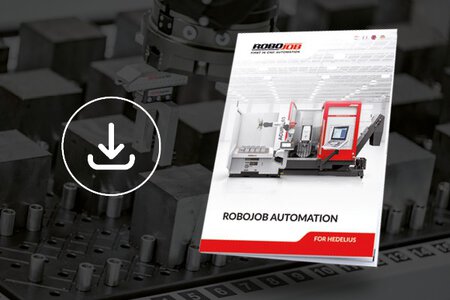
(PDF | EN) Automate your HEDELIUS machining centre with the innovative RoboJob systems and increase your productivity around the clock. Whether small series, medium quantities or unmanned night production: with the Mill-Assist and Tower systems, you can work more economically, reduce downtimes and ensure the long-term competitiveness of your production. Download the free "RoboJob automation for HEDELIUS" folder now and find out how you can upgrade your machining centre to a smart automation solution in just a few steps.

Our HEDELIUS in-house exhibition on 14 and 15 May 2025 was a complete success - and we owe this above all to you! A big thank you to the numerous visitors, but of course also to our dedicated employees and our strong partners. The personal exchange with our guests, inspiring conversations and new impulses made the two days in our technology centre a real highlight.
Take a look back at this successful event with our event video and the impressions in pictures!

